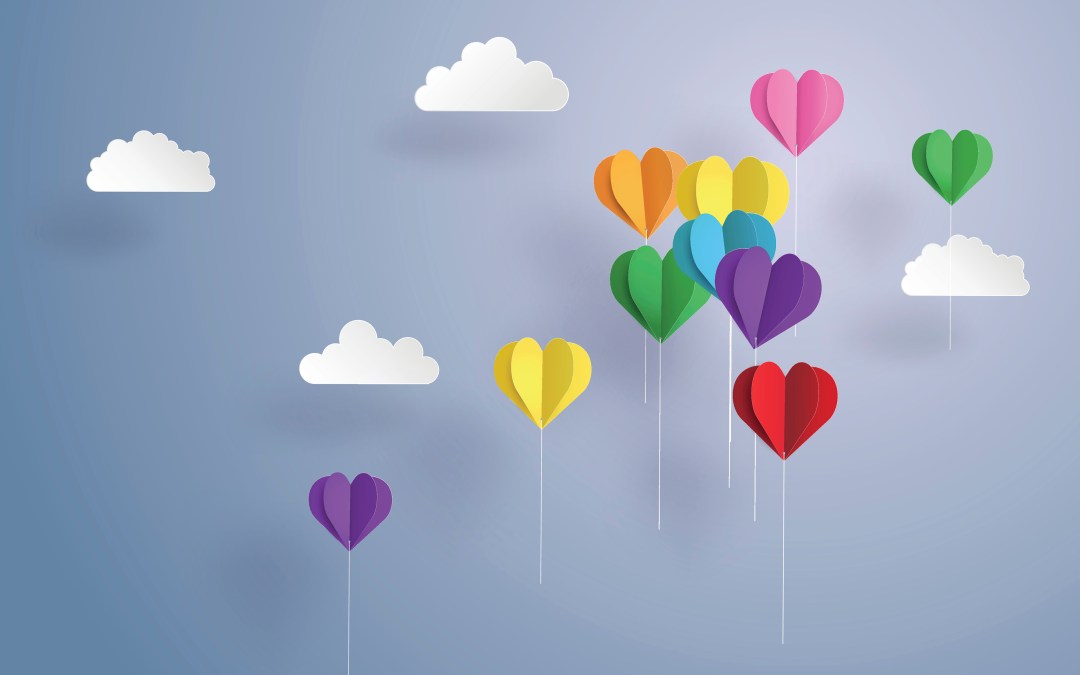Thought leader comes to the Mindful Living Show
Psychologies Editor, Suzy Walker is delighted that world-renowned teacher and author Sharon Salzburg is coming to the Mindful Living Show this March.

As Editor of Psychologies, I meet incredible people and read inspiring books daily, but I have a pile of books by Sharon Salzberg by my beside so I’m delighted that she will be in London for the Mindful Living Show this March.
In these turbulent times, wisdom is the currency on which we should put the highest value, and her newest book Real Love: The Art Of Authentic Connection (Pan Macmillan, £14.99) should be required reading for every human being on earth. ‘You are a person worthy of love. You don’t have to do anything to deserve it. You do not have to earn love. You simply have to exist.’ In it, she explores the wisdom of true connection – encouraging us to strip away layers of negative habits and obstacles, to help us create deeper connections with others and, most importantly, ourselves.
‘I see real love as the most fundamental of our capacities, never destroyed no matter what we’ve been through. It may be buried or hard to trust, but it’s there – like a heartbeat – beneath the words we use to greet each other; as we ponder how to critique someone’s work without hurting them; gather the courage to stand up for ourselves or realise we have to let go of a relationship. Real love seeks to find authentic life, to uncurl and blossom,’ says Salzberg. Here are my three favourite lessons from her book.
1. Tell a different story through the eyes of love
‘Our minds are wired to create order, a cohesive narrative, and our stories are our anchors. They tell us who we are, what matters most to us, what we’re capable of and what our lives are all about,’ writes Salzberg.
But that’s not always a useful thing, when we internalise experiences from childhood and make a permanent story about how life is. For example, say in childhood, a dog bites us and we become terrified of all dogs. ‘If we pay attention, one day we realise we’ve spun a story in our mind about an entire species based on a single incident with a single animal and that our story is not really true,’ says Salzberg. Until we question our basic assumptions about ourselves, and view them as fluid, not fixed, it’s easy to repeat established patterns and, out of habit, re-enact old stories that limit our ability to live and love ourselves with an open heart.
Try: To truly love ourselves, we must treat our stories with respect, but not allow them to have a stranglehold on us, says Salzberg. ‘Living in a story of a limited self is not love. To truly love ourselves, we must challenge our belief that we need to be different to be worthy of love. When we contort ourselves, doggedly trying to find a way to become “better”, our capacity to love shrinks.’
Ask these questions instead: If I look at the story I have been telling myself through loving eyes, how would I tell the same story? ‘Maybe we don’t need to correct some terrible deficiency in us. Maybe what we really need is to change our relationship with ourselves, to see who we are with a generous spirit and a wise heart,’ says Salzberg.
2. Create a new relationship with your thoughts and feelings
‘Most people who are drawn to meditation are looking for respite from what is called “monkey mind” – the perpetual, hyperactive (and often self-destructive) whirl of thoughts and feelings that everyone undergoes,’ she says. ‘The truth is that meditation does not eradicate mental and emotional turmoil – rather, it cultivates the space and gentleness that allows us intimacy with our experience, so that we can relate differently to our cascade of emotions and thoughts. That different relationship is where freedom lies.’
Try: RAIN is an acronym for a practice designed to ease negative emotion, confusion and suffering.
- R is for Recognition. It’s impossible to deal with an emotion, and to be resilient in the face of difficulty, unless we acknowledge that we’re experiencing it,’ says Salzberg. So, firstly, note how you are feeling.
- A is for Acceptance. Accept the feeling and allow it to be there. Give yourself permission to feel it. Imagine each thought and emotion is a visitor knocking at the door of your home. They don’t live there – you can greet them, acknowledge them and watch them go.
- I is for Investigation. Explore your emotions with a sense of openness and curiosity. Examine how each feeling manifests in your body and look at what the feeling contains. Many strong emotions are intricate tapestries woven out of various strands. Anger, for example, commonly includes moments of sadness, helplessness and fear. As we get closer to it, an uncomfortable emotion becomes less opaque and solid. We can focus less on labelling the discomfort and more on gaining insight.
- N is for Non-identification. In the final step, the aim is to consciously avoid being defined by, and identified with, a particular feeling. Feeling angry is different from telling yourself, ‘I am an angry person.’ Try noticing your anger, advises Salzberg, and, instead of spiralling into judgement, make a gentle observation: ‘This is a state of suffering.’
- ‘The identification opens the door to a compassionate relationship with yourself, which is the real foundation of a compassionate relationship with others. We cannot will what thoughts and feelings arise in us, but we can recognise them for what they are – sometimes recurring, sometimes frustrating, sometimes filled with fantasy, many times painful and always changing. By allowing ourselves this simple recognition, we begin to accept that we will never be able to control our experiences, but that we can transform our relationship with them – and this changes everything,’ she says.
3. Befriend your inner critic
The inner voices that tell us, ‘You aren’t good enough,’ are a huge obstacle to connecting fully to ourselves and feeling loved. We may argue with those voices sometimes but, when we feel disconnected from ourselves or are lonely, it’s easy to fall prey to them. ‘Our in-house critic can keep us imprisoned by our own limiting thoughts,’ says Saltzberg.
Try: Does your critic have a voice or face? Whose? What happens when you thank your critic? ‘If you find yourself ruminating on the things you regret and mistakes you have made, try to redirect your attention and remember your basic goodness. The point is not to deny your mistakes but, if you keep rehearsing them, analysing them and creating stories around them, you’re reinforcing the pain and alienation they’ve already caused you,’ she says.
Instead, recognise and reflect on even one good thing about yourself. Sit comfortably in a relaxed, easy posture and close your eyes. Now, bring to mind one thing you have done or said recently that you feel was kind or good. If you still find yourself caught up in self-criticism, turn your attention to the mere fact that you have an urge towards happiness. ‘There is kindness and beauty in that,’ she says.
Sharon Salzberg has played a crucial role in bringing meditation and mindfulness into mainstream culture and is author of nine books, including bestseller ‘Real Happiness’ (Workman, £10.58). Sharon Salzberg will be speaking at The Mindful Living Show https://www.mindfullivingshow.com/








